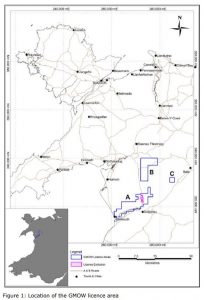Prince Harry’s recent engagement combined with the massive success of Netflix’s series The Crown has reignited people’s and media’s interest in the British monarchy.
This is probably why newspapers and news sites around the UK paid special attention this week to the fact that later in 2018 the Clogau St David’s mine, located near Bontddu in North Wales, might reopen after two decades of inactivity.

Turns out that Clogau produced the gold from which Edward VIII’s coronet, rod, ring and sword were drawn, back in 1911. From the mine was also extracted the gold behind three generations of royal wedding bands, including those of the Queen Mother, the Queen, Princess Margaret, the Princess Royal and Diana, Princess of Wales.
Clogau was shut down in 1998 due to diminishing amounts of the yellow metal. However, in December 2017, London-based Alba Mineral Resources announced it had taken a 49 per cent interest in Gold Mines of Wales Limited, the owner of the property, and that it had decided to restart the project because it sits on "a vastly under-explored exploration ground." A large number of highly prospective gold targets and former gold workings within a total option area of 106.94 km² are also included in the deal.
“The focus will be on bringing the Clogau Gold Mine back into production and also making a push into the regional exploration of the wider project area,” Alba said in a press release where it also added that the company will use its expertise as an operator of mining projects to assist Gold Mines of Wales in fast-tracking the development of the new strategy.
The first step would be to undertake detailed underground structural mapping and sampling to modernise the geological interpretation of the project. Then, both firms would commission an airborne magnetic and electro-magnetic survey over the most prospective areas to detect deeper targets at and around the Clogau Gold mine itself which have never been drilled or mined, as well to identify significant structures within the wider exploration ground for follow-up drilling.
According to Alba, there is a high potential to find unworked veins containing gold mineralisation of similar grade to that known in historic mines in the area. “The opportunity presented by this project is pretty unique – high-grade gold in the heart of the United Kingdom, and the fact that Welsh gold attracts a significant premium,” executive chairman George Frangeskides wrote in the statement.
North Wales has produced around 131,000oz of gold since the early 1800s, with 81,000oz of that from Clogau.
The post Alba wants to reopen gold mine behind three generations of royal wedding rings appeared first on MINING.com....

